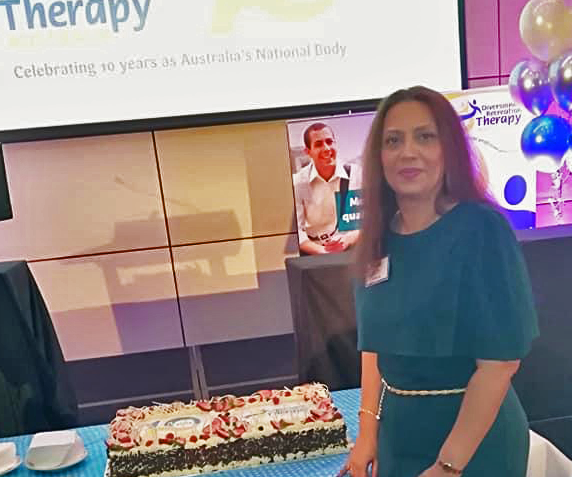Spotlight On Diversional Therapy: Jesika Sachdeva, Powley

Powley Diversional Therapist (DT) Jesika Sachdeva has been at Metlifecare for seven years. Although the role is like being ‘an octopus with many arms’, she says diversional therapy is the perfect career thanks to her special connection with seniors.
How long have you worked at Metlifecare?
I completed seven years with Metlifecare in June.
Can you tell us in a couple of sentences what a Diversional Therapist (DT) does?
Diversional and Recreational Therapists support individuals by planning and running recreational programmes to enhance their mental, social, emotional and physical well-being and to improve the quality of life of people in our care.
What made you decide to become a DT and what sort of training does it entail?
I feel a special connection with seniors and love to be around them because they have so much to share to this world. We can all learn so much from them. Being a Diversional Therapist, I don’t only give to them, but I take a lot from them as well.
Everyone works for money, which is the reality of it, but for me, my job is my passion. I love my job. I feel happy and at the end of the day it gives me satisfaction when I put a smile on someone’s face.
I am not only a DT, but also a registered DT with the New Zealand Society for Diversional and Recreational Therapists (NZSDRT). NZSDRT is a member of Allied Health NZ. Anyone working in a role of Activities/Social Coordinator, Activities Assistant or DT can apply to be a member of the society, but to be a registered member you have to complete a New Zealand Certificate in Health and Wellbeing (Social and Community Services) (Level 4), and 300 hours of work as a DT.
I completed my apprenticeship training thanks to the support of my Nurse Manager, Angela Lennan at Powley (Auckland) more than two years ago.
What does a typical work day look like for you?
I plan out recreational activities for my residents a month in advance. My 9am-4.30pm workday starts with gathering residents for ‘NZ History for the day’ and newspaper reading, followed by a planned activity for the morning session.
After midday I have walking group followed by an afternoon activity session and finish my day with documentation.
During the day I also have appointments with family members, carrying out assessments, reviews and evaluations. In simple words I would say a DT is a good example of an octopus with many arms and doing multiple jobs!
What’s a particularly meaningful moment you may have had with a resident?
Particularly meaningful moment for me is when I am able to achieve my goal for a resident. When clients come into hospital level care, their abilities decrease hugely, but they always have the desire to keep going and do things they have always done or always wanted to do.
What does lockdown mean for your role?
More work for everyone in the team and for myself. Our care home divides into two bubbles during lockdown. I carry out activities in smaller groups, physically distancing residents to follow all the lockdown procedures.
I read newspapers twice in the morning to two different groups, work out activities for people staying in their rooms as well as activities for different groups at different times/sessions including all my normal routine work.